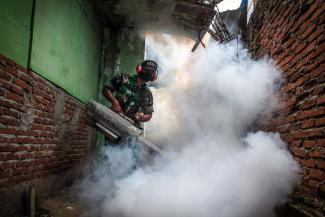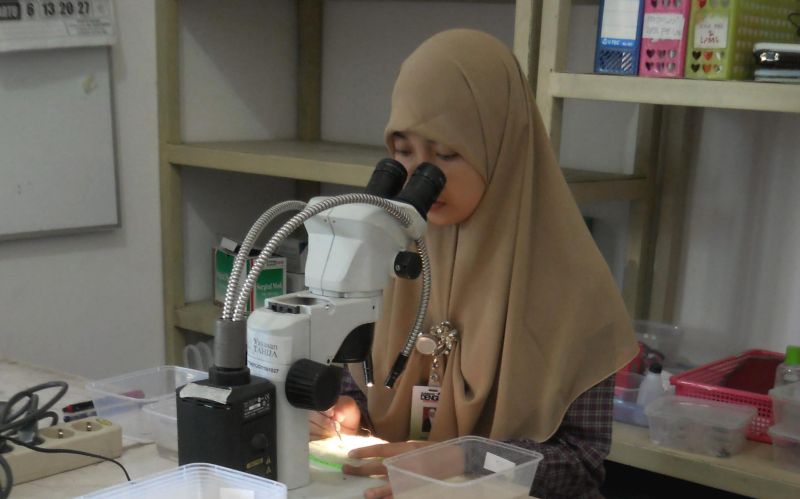Dengue
At least 900 dead in 2015

Mosquitos haunt the alleys and streets of Jakarta’s crowded informal neighbourhoods, where poor people live, as well as the normally sterile high-rise apartment blocks that are the homes of the better off. The more it rains, the worse the problem becomes. Mosquitos are not only irritating, some are really dangerous.
Dengue is a flu-like, but severe illness with potentially lethal complications (see box). Mosquitos transmit it. This year, infections were reported in nearly all of Indonesia’s major cities. According to the Jakarta Post, some 100,000 cases were counted in the country last year, and the disease killed some 900 people.
There must have been many unreported cases however. Poor people often do not see a professional doctor, so they never get a scientific medical diagnosis. Moreover, the health-care infrastructure is much poorer in villages, where dengue is prevalent too.
There is no specific treatment for the illness, though traditional medicine relies on plants and fruits like guava to help patients recover. The disease can be deadly, but most patients get well again after severe suffering.
The main way of preventing dengue is to reduce mosquitos’ breeding grounds. Obviously, doing so also reduces the risk of other mosquito-borne illnesses, including malaria, for example.
Mosquitos need only three millimetres of stagnant water to lay eggs. In urban areas, water standing in puddles, car tracks or even empty tin cans can be the problem. In rural areas, mosquitos breed in rice paddies, swamps, stagnant ponds and slow moving streams, for example.
To limit mosquito populations, one should:
- clear the neighbourhood of ponds and water holes,
- cover all water containers and remove objects that can trap rain water,
- regularly drain and fill swimming and ornamental pools, keeping the water flowing,
- keep larvae-eating fish in rice paddies or ponds that cannot be drained,
- install mosquito screens on doors and windows,
- use mosquito nets over beds, and
- change water in vases and flowerpots at least once a week.
Methods of personal protection, moreover, include the use of mosquito repellents and wearing clothes to limit skin exposure to mosquitos. Insecticides should only be used sparingly because they have unwanted side effects both in terms of human health and the environment. If a specific mosquito-related health risk is evident, however, it may make sense to use insecticides.
Some people propose exterminating mosquitos, but that approach would be environmentally irresponsible. Mosquitos are important components of eco systems.
Vaccine hopes
Indonesia is striving to get a grip on dengue. The government is promoting preventive measures, including the use of pesticides in infection-prone areas. It is following the proposals made by the World Health Organization on these matters.
Unfortunately, Indonesia cannot benefit from the first dengue vaccine which was registered in Mexico in 2015. According to the Ministry of Health, the vaccine does not serve the nation’s health needs because it does not prevent infection with the virus strains that are common in the country. The government is cooperating with Bio Farma, an Indonesian pharmaceuticals company on developing a vaccine against the two locally prevalent virus strains (DENV-3 and DENV-4).
According to media reports, Bio Farma has succeeded in isolating DENV-3, but will need at least three years before a safe vaccine for DENV-3 can be produced. People would still be exposed to DENV-4 however.
The Indonesian Health Ministry is expressing optimism nonetheless. It hopes human testing can be carried out soon and sees an opportunity for providing an affordable solution of other Asian countries, which are plagued by the same dengue strains as Indonesia. Bio Farma has a strong track record. It has developed an anti-polio vaccine which it now markets throughout the ten ASEAN member countries.
Edith Koesoemawiria is a freelance journalist.
hidayati@gmx.de








